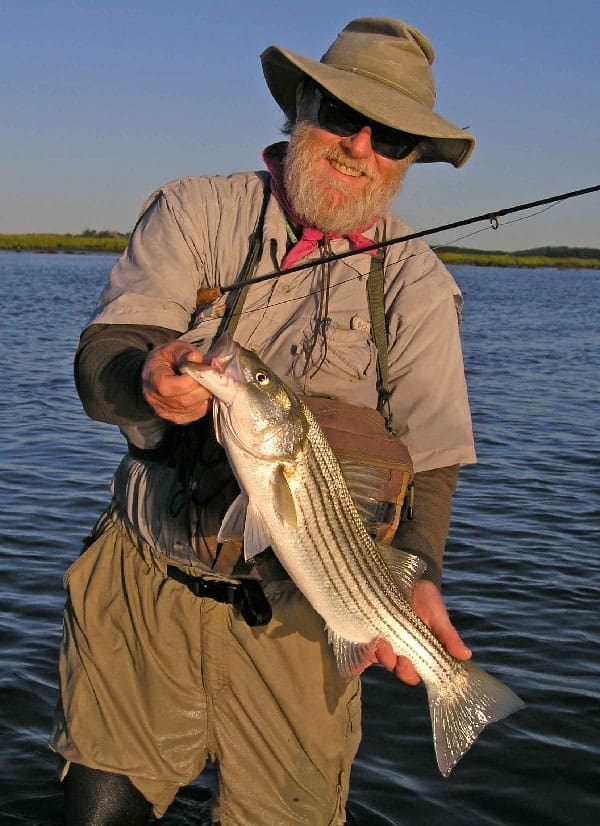“An Economics of Love“
Spring / Summer Course 2024
Mondays – April 15 to July 8, 2024
Sneak Preview – Monday, April 8, 2024

Course Description
In this course, “An Economics of Love,” we will take a serious look at roads not taken in economics that should open us up to an entire range of important but undeveloped issues in this field.
We will explore and discuss in great detail the consequences of a serious error built into the foundations of economics as a discipline, responsible for many Nobel Prizes in Economics during the 1970s and 1980s. Had this error not been made, the field of economics would have evolved quite differently than it actually has, into an economics of love, or what we will learn to understand as an economics of complementarity, abundance and consilience. Although other writers have touched upon these issues, none have come closer to what Jennings has in mind than Robin Wall Kimmerer, so we will start the course with one of her essays in WEEK TWO. This course is designed to show you a new pathway through the complexities of a discipline that – because of this error – is directly responsible for a great deal of ethical, cultural and ecological damage in our world, the consequences of which are becoming a serious threat to the viability and continuation of human civilization.
Part of the problem is that we cannot see what we ignore. The emphasis of our one-hour weekly discussions in this course will be to draw out from participants’ own reading and life experiences other reinforcing connections to the readings assigned in this course. This is why those readings are minimal in length and time required (mostly 20-30 pages per week).
Course Schedule
- SNEAK PREVIEW SESSION – April 8, 2024
- COURSE – April 15 – July 8, 2024 – WEEKLY ON MONDAYS
- NO CLASS ON MEMORIAL DAY – May 27, 2024
Format
This course will meet for 12 weeks on Mondays from 12-1pm ET starting on April 15 and running through July 8, 2024. We will host an open preview session on Monday, April 8 from 12-1pm ET. There is no class on Memorial Day, May 27.
Classes will only be one hour in length each week, but will be allowed to spill over into the next hour when needed if participants so desire. We will be flexible in this regard.
Each week we will have a wide-ranging discussion of certain key issues related to what this field might become, and what we all are missing out on because of these framing errors. Classes will be recorded, both “for the record” and to allow those unable to make it to class to see what they missed. Participants’ regular attendance is strongly encouraged, however, as in-class discussions will be the heart and soul of the course and the source of its value.
There are two tracks of readings: BASIC and ADVANCED (for those who want to dig more deeply into the material and be a bit more challenged than on the BASIC track).
Meet Your Instructor – Fred Jennings, PhD, Ecological Economist

Fred Jennings was trained in traditional economics at Harvard and Stanford Universities, though he developed a quite divergent approach to this subject in subsequent years. He has 40 years of teaching and research experience, first in academics and then in economic litigation. He is the author of numerous published papers and essays on what went so wrong with economics and how to reframe it into an ecologically sensitive form based on a more realistic concept of choice and knowledge. Fred is also an avid conservationist and fly fisherman. He joined Biodiversity for a Livable Climate in 2016.
April 8, 2024 – SNEAK PREVIEW
We review the nature and goals of this course and its self-directed research aspects.
This free introductory overview of the course has always been offered in Jennings’ courses. It will be held from 12-1pm ET on Zoom and will provide a “sneak preview” of the materials and issues to be addressed. Register for the preview session here.
Detailed Curriculum
April 15, 2024 – WEEK ONE: INTRODUCING “AN ECONOMICS OF LOVE”
Why is love so scarce? It is virtually costless to produce, and always in demand.
BASIC READING: Jennings, The Economics of Horizon Effects, Chapter 1: “The Economics of Love,” pp. 2-19, online at: https://www.academia.edu/33743074/THE_ECONOMICS_OF_HORIZON_EFFECTS_2016_FINAL_PUBLISHED_VERSION_978_3_330_05796_8_pdf
ADVANCED READING: Jennings, The Economics of Horizon Effects, Chapter 5: “A New Economics of Complementarity, Increasing Returns and Planning Horizons,” pp. 145-64, online at: https://www.academia.edu/33743074/THE_ECONOMICS_OF_HORIZON_EFFECTS_2016_FINAL_PUBLISHED_VERSION_978_3_330_05796_8_pdf
April 22, 2024 – WEEK TWO: SCARCITY AND ABUNDANCE IN ECONOMIC PERSPECTIVE
We read and discuss essays by Kimmerer and Jennings on these fundamental issues.
BASIC READINGS: Kimmerer’s Emergence Magazine essay on “The Serviceberry: An Economy of Abundance” online at: https://emergencemagazine.org/essay/the-serviceberry/;
Jennings Resilience Magazine essay on “Six Choice Metaphors to Unfold Economics” as an overview of horizonal theory, online at:
https://www.resilience.org/stories/2021-07-12/six-choice-metaphors-to-unfold-economics/;
and/or Jennings Resilience Magazine essay on “Scarcity and/or Abundance? The Horizonal Nature of Social Relations” online at: https://www.resilience.org/stories/2020-12-02/scarcity-or-abundance-the-horizonal-nature-of-social-relations/
ADVANCED READING: Jennings Journal of Philosophical Economics paper on “Six Choice Metaphors and Their Social Implications” for a slightly more detailed overview of horizonal theory, online at: http://www.jpe.ro/pdf.php?id=2863
April 29, 2024 – WEEK THREE: WHAT WENT SO WRONG IN ECONOMICS? – IMPLICATIONS
How did diminishing returns and substitution become “general laws” of economics?
BASIC READING: Jennings Resilience Magazine essay on “How Economists Abandoned Time to Create a Myopic Culture” online at: https://www.resilience.org/stories/2023-08-31/how-economics-abandoned-time-to-create-a-myopic-culture/?mc_cid=51a00db394&mc_eid=b8aa15c89a
ADVANCED READING: Jennings paper on “What Went So Wrong in Economics” online at: https://www.qeios.com/read/1YVLRS
May 6, 2024 – WEEK FOUR: THE CULTURAL IMPLICATIONS OF PLANNING HORIZONS
What would our world be if increasing returns had prevailed after the 1930s debates?
BASIC READING: Jennings Resilience Magazine essay on “Atoms, Bits and Wits: The Economic Case for Cooperation” online at: https://www.resilience.org/stories/2023-02-15/atoms-bits-and-wits-the-economic-case-for-cooperation
ADVANCED READINGS: Jennings, The Economics of Horizon Effects, Chapter 3: “Atoms, Bits and Wits: The Elements of Economics,” pp. 58-104, and/or Chapter 7: “The Culture of Complementarity,” pp. 196-233, both online at: https://www.academia.edu/33743074/THE_ECONOMICS_OF_HORIZON_EFFECTS_2016_FINAL_PUBLISHED_VERSION_978_3_330_05796_8_pdf
May 13, 2024 – WEEK FIVE: THE METHODOLOGICAL IMPACT OF HORIZONAL THEORY
How are economic methods affected by increasing returns and complementarity?
BASIC READING: Jennings Resilience Magazine essay on “Academy, Society and Personal Growth: Some Thoughts on Our Modern Malaise” online at: https://www.resilience.org/stories/2021-05-19/academy-society-and-personal-growth-some-thoughts-on-our-modern-malaise
ADVANCED READING: Jennings, The Economics of Horizon Effects, Chapter 6: The Methods of Planning Horizons, Increasing Returns and Complementarity,” pp. 165-195, online at: https://www.academia.edu/33743074/THE_ECONOMICS_OF_HORIZON_EFFECTS_2016_FINAL_PUBLISHED_VERSION_978_3_330_05796_8_pdf
May 20, 2024 – WEEK SIX: THE ETHICAL IMPLICATIONS OF PLANNING HORIZONS
When we start to think in horizonal terms, how does this shape our focus on ethics?
BASIC READINGS: Jennings Resilience Magazine essay on “Authenticity” online at: https://www.resilience.org/stories/2020-11-18/authenticity/?utm_source=rss&utm_medium=rss&utm_campaign=authenticity;
and/or Jennings Resilience Magazine essay on “What Might We Learn from COVID-19?” online at: https://www.resilience.org/stories/2020-04-14/what-might-we-learn-from-covid-19/
ADVANCED READINGS: Jennings, The Human Ecology of Horizon Effects, Chapter 9: “Toward an Ethical Economics of Planning Horizons and Complementarity,” pp. 190-209, and/or Chapter 12: “Planning Horizons as Social Conscience: The Foundation for an Ethical Economics,” pp. 258-300, both online at: https://www.academia.edu/33743123/THE_HUMAN_ECOLOGY_OF_HORIZON_EFFECTS_2017_FINAL_PUBLISHED_VERSION_978_3_330_06796_7_pdf
May 27, 2024 – NO CLASS ON MEMORIAL DAY
June 3, 2024 – WEEK SEVEN: HORIZONS AND CORPORATE SOCIAL RESPONSIBILITY
How will horizonal thinking influence business decisions and corporate behavior?
BASIC READINGS: Jennings Resilience Magazine essay on “Ruminations on Resilience” online at: https://www.resilience.org/stories/2021-04-15/ruminations-on-resilience;
and/or Jennings Resilience Magazine essay on “Thoughts on Activism” online at: https://www.resilience.org/stories/2021-04-19/thoughts-on-activism
ADVANCED READING: Jennings, The Human Ecology of Horizon Effects, Chapter 11: “Planning Horizons, Conscience and the Ethics of Externalities: Organizational Theory and the Emergence of Social Responsibility,” pp. 237-257, online at: https://www.academia.edu/33743123/THE_HUMAN_ECOLOGY_OF_HORIZON_EFFECTS_2017_FINAL_PUBLISHED_VERSION_978_3_330_06796_7_pdf
June 10, 2024 – WEEK EIGHT: PLANNING HORIZONS AND PLURALISM IN EDUCATION
Beyond linear thinking. Dealing with systems and complexity. Engaging with Nature!
BASIC READING: Jennings Resilience Magazine essay on “Hammers, Nails and New Constructions – An Obvious Case for Economic Pluralism” online at: https://www.resilience.org/stories/2021-08-02/hammers-nails-and-new-constructions-an-obvious-case-for-economic-pluralism
ADVANCED READING: Jennings paper in the International Journal of Pluralism and Economics Education on “Why Pluralism” online at paywall protected site: https://www.inderscience.com/info/inarticle.php?artid=127225: get from Jennings
June 17, 2024 – WEEK NINE: TRANSPORTATION AS A CONCEPT OF INTERDEPENDENCE
Transportation offers a way to frame interdependent connections: what can we learn?
BASIC READING: Jennings, Resilience Magazine essay on “What I Learned from the British Canals” online at: https://www.resilience.org/stories/2023-04-17/what-i-learned-from-the-british-canals/
ADVANCED READINGS: Jennings, The Economics of Horizon Effects, Chapter 14: “A Horizonal View of Competition in Transportation Networks,” pp. 348-359, and/or Jennings’ summary of his Ph.D. Dissertation in Chapter 15: “Public Policy, Planning Horizons and Organizational Failure: A Post-Mortem on British Canals,” pp. 360-395, both online at: https://www.academia.edu/33743074/THE_ECONOMICS_OF_HORIZON_EFFECTS_2016_FINAL_PUBLISHED_VERSION_978_3_330_05796_8_pdf
June 24, 2024 – WEEK TEN: MANAGING FISHERIES IN OPEN ECOLOGICAL SYSTEMS
Fisheries management issues confront us with complexities in engaging with Nature!
BASIC READINGS: Jennings, Resilience Magazine essay on “A Flyfishing Ecology” online at: https://www.resilience.org/stories/2021-06-01/a-flyfishing-ecology; and/or Jennings, The Human Ecology of Horizon Effects, Chapter 3: “The Ecological Economics of Horizon Effects” online at: https://www.academia.edu/33743123/THE_HUMAN_ECOLOGY_OF_HORIZON_EFFECTS_2017_FINAL_PUBLISHED_VERSION_978_3_330_06796_7_pdf
ADVANCED READING: Jennings, The Human Ecology of Horizon Effects, Chapter 15: “The Privatization of Ocean Fisheries: A Paradigmatic View,” pp. 337-352, which is a summary of Jennings’ Nov. 1999 Greenpeace Report called SCARING THE FISH, online at: https://www.academia.edu/33743123/THE_HUMAN_ECOLOGY_OF_HORIZON_EFFECTS_2017_FINAL_PUBLISHED_VERSION_978_3_330_06796_7_pdf
July 1, 2024 – WEEK ELEVEN: THINKING LARGE ON SYSTEMS AND MARKET INCENTIVES
We inhabit a social incentive structure of laws, rules and cultures: can we control it?
BASIC READING: Jennings Resilience Magazine essay on “The Joust and the Potlatch as Social Alternatives” online at: https://www.resilience.org/stories/2021-03-11/the-joust-and-the-potlatch-as-social-alternatives)
ADVANCED READING: Jennings, OUT FROM AN AGE OF DENIAL, Part Two: The Economic Process, Chapters 3-6, available from Jennings
July 8, 2024 – WEEK TWELVE: THE HEALTH EFFECTS OF OUR SYSTEMS DESIGNS
A look at the health effects of our systems. A course summary. Why economics matters.
BASIC READING: Jennings Journal of Economic Issues paper on “The Cultural and Health Implications of Economic Complementarity” online at: https://www.tandfonline.com/doi/abs/10.1080/00213624.2015.1042807?journalCode=mjei20 but paywall protected; get from Jennings
ADVANCED READING: Jennings paper (forthcoming) in the Journal of Philosophical Economics on “The Economic Cultures of Fear and Love” online at: https://hal.science/hal-04380337/document
THE FINAL CLASS WILL ALSO INCLUDE A COURSE EVALUATION FORM.

